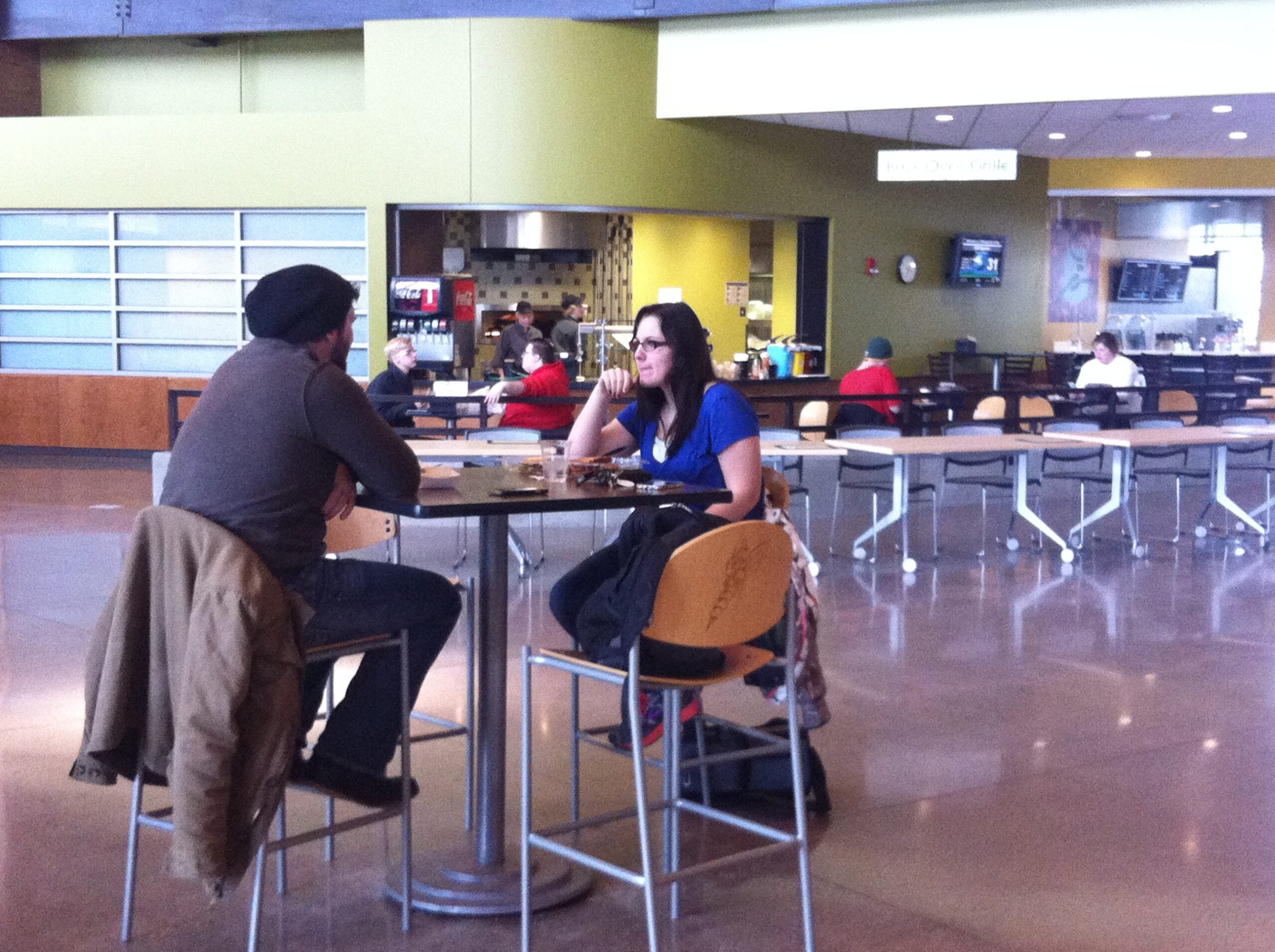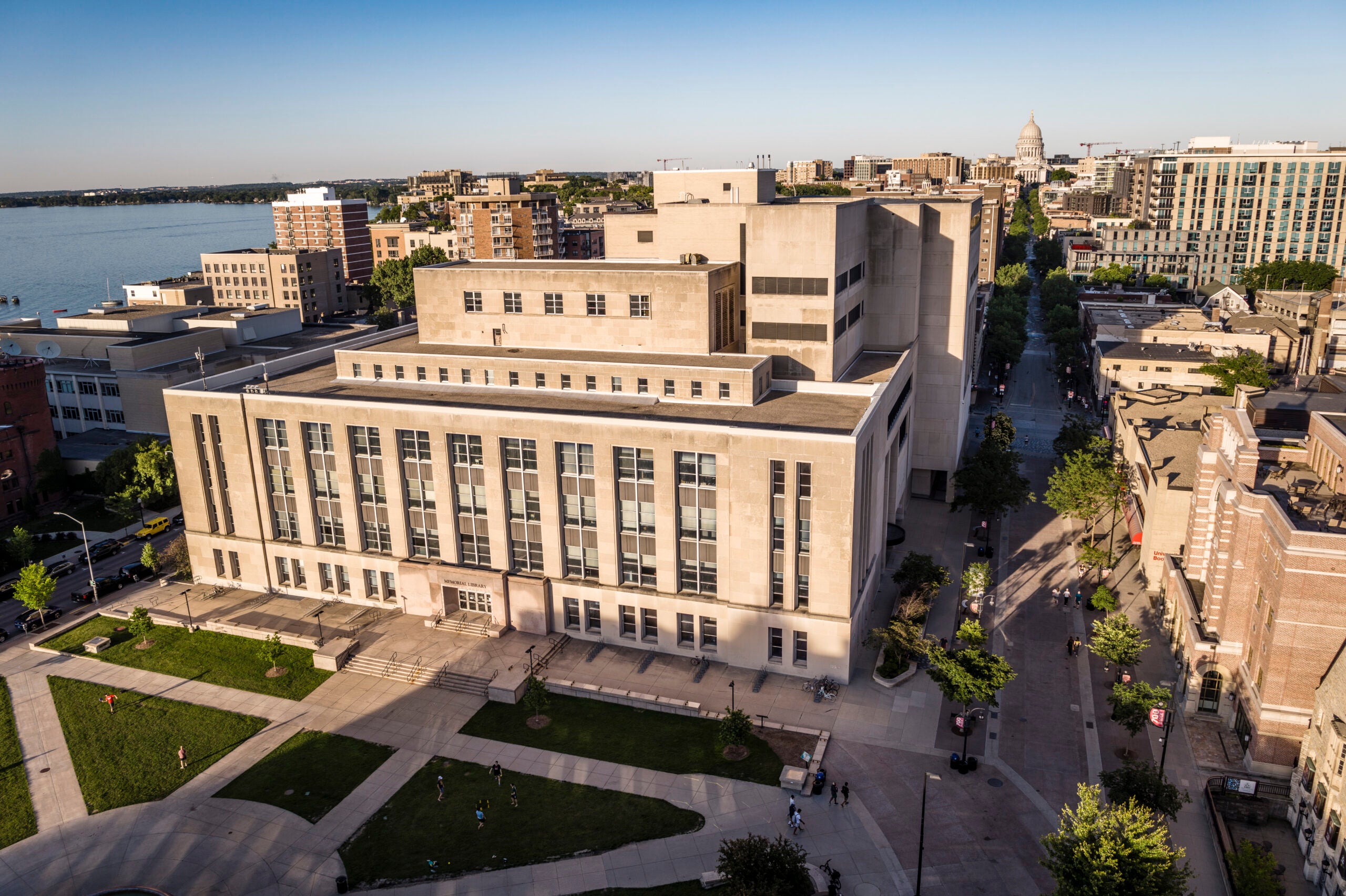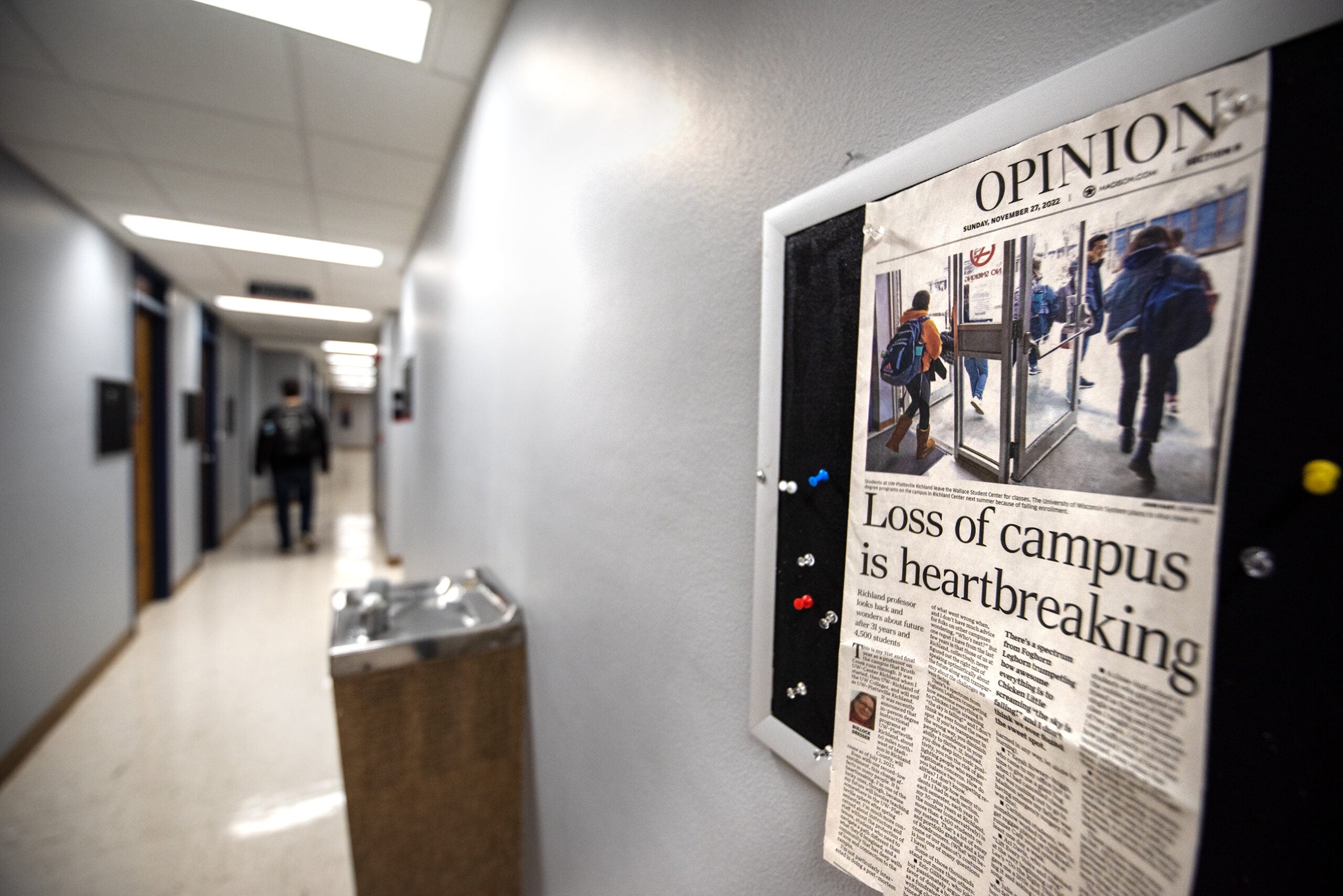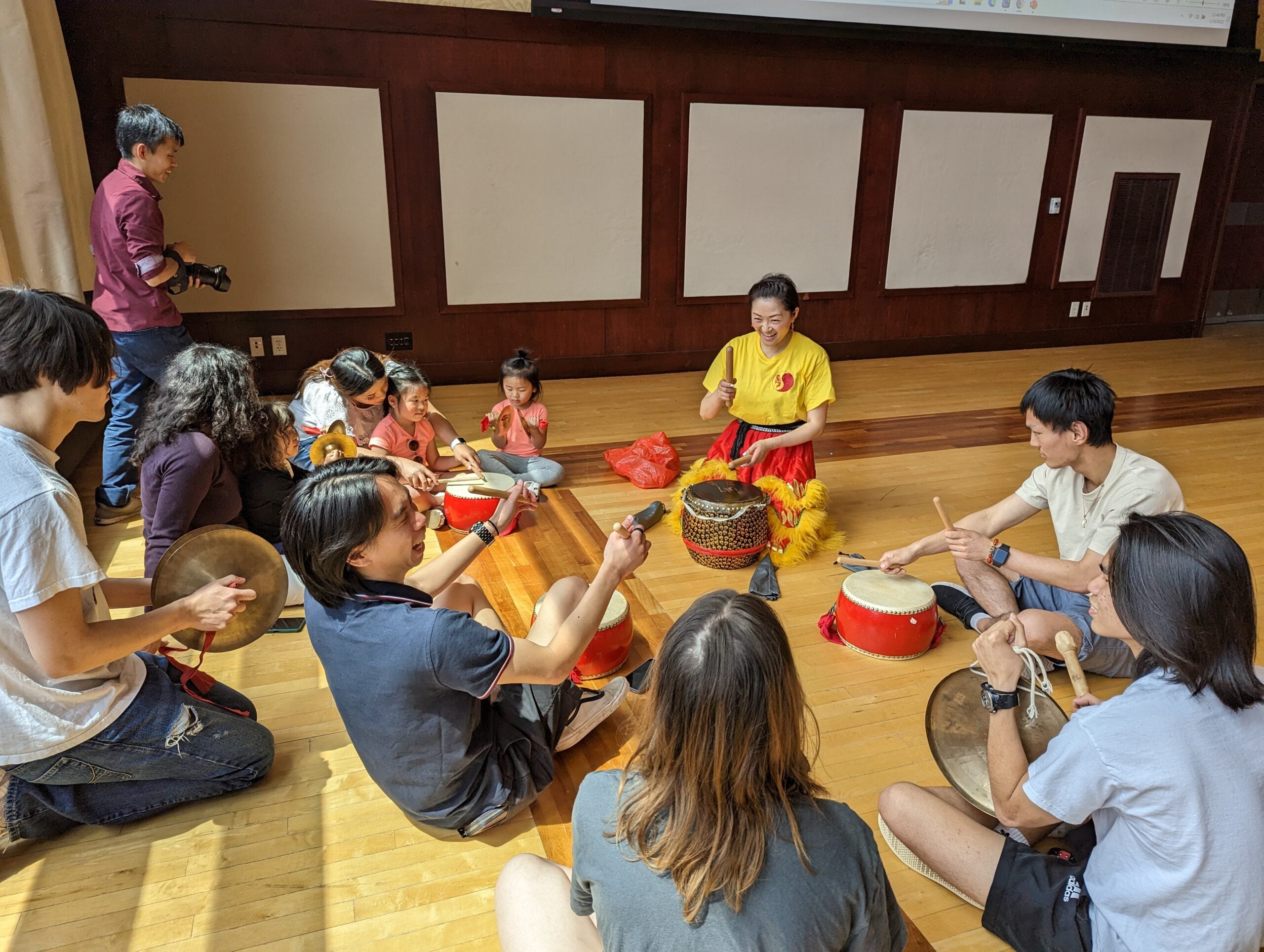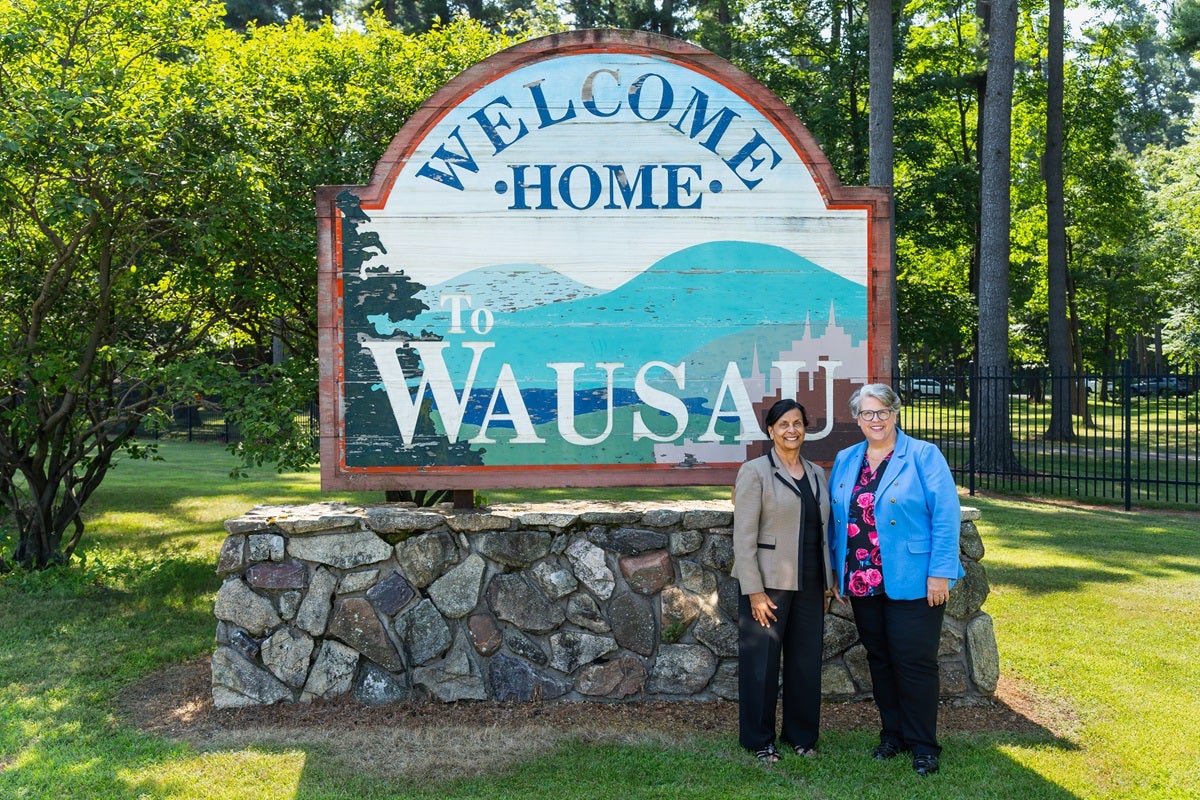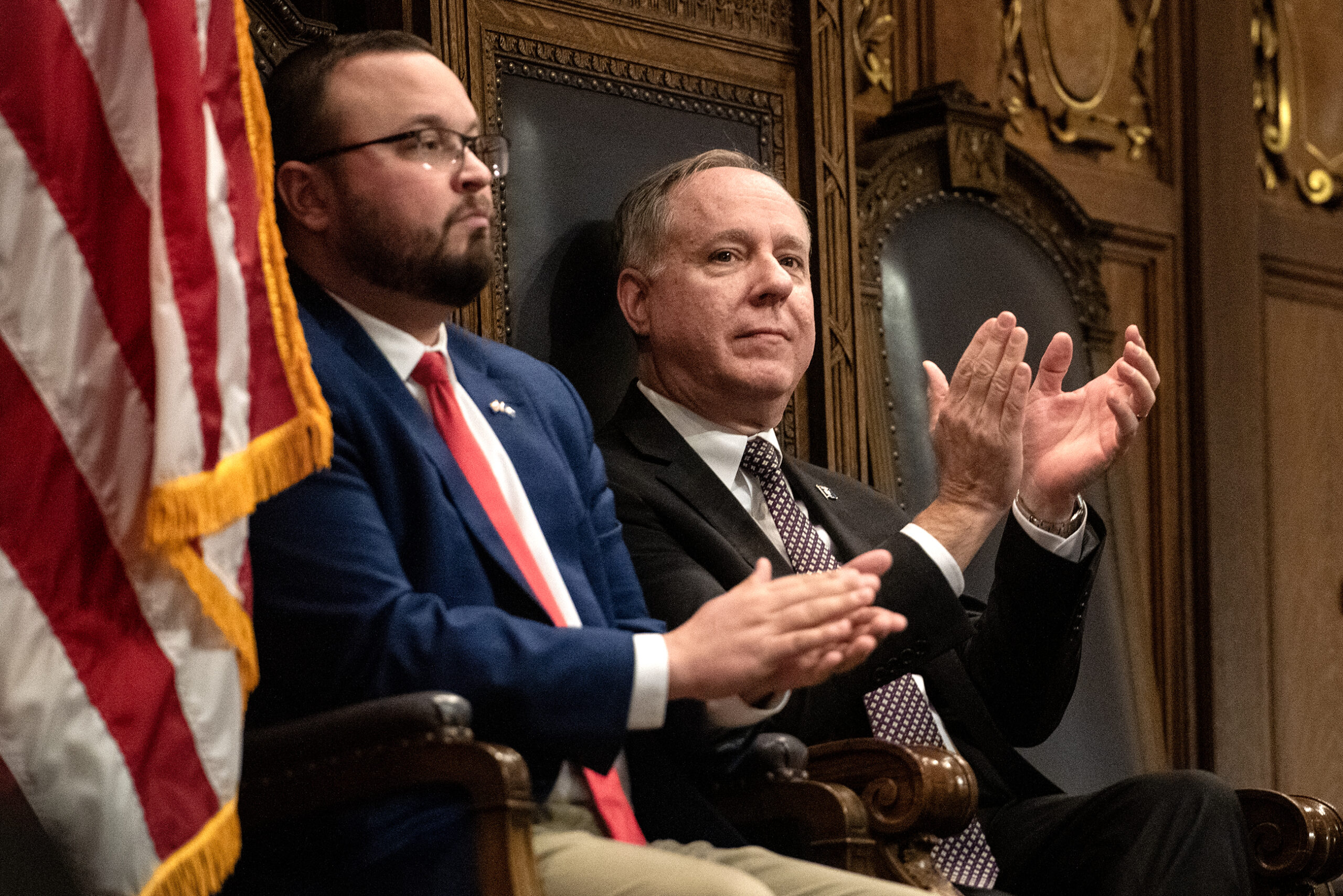Wisconsin’s public universities are making changes after state lawmakers approved another round of cuts and tuition freezes for the University of Wisconsin System last year. Declining enrollment, debt and a lack of reserve funds at UW-Superior have left the campus unable to absorb the cuts. Fewer dollars on campus has meant fewer programs and faculty for students.
Caleb Schmidt tried out a few UW schools before settling on somewhere close to his hometown of Shell Lake. The junior is studying broad field social studies at UW-Superior.
“Because I want to be a teacher for some reason,” said Schmidt. “Probably over half the people who are influential in my own life are teachers so if I can give that back to someone else, that would be great.”
News with a little more humanity
WPR’s “Wisconsin Today” newsletter keeps you connected to the state you love without feeling overwhelmed. No paywall. No agenda. No corporate filter.
Schmidt is taking a break from classes in the school’s new student center. It’s one of two building projects that contributed to the university’s looming $4.5 million shortfall two years back. He’s aware of cuts on campus, but he said UW-Superior’s ongoing financial challenges aren’t really on his radar.
“Blissfully ignorant,” Schmidt said.
However, broad field social studies is one of 16 programs that remain under review due to low enrollment. Declining enrollment, state aid and tuition freezes prompted the university to begin reviewing all programs in 2013. So far, UWS has suspended 20 programs and cut dozens of faculty and staff.
Now, the campus must absorb its share of $250 million the Legislature cut from state funding for higher education. The university will need to cut another $851,000 from its budget.
School officials highlight the cuts made on campus have already trimmed the deficit in half from $4.5 million to roughly $2 million. UWS Chancellor Renee Wachter said there are no plans to cut more positions or programs for now.
“If things would’ve been cut, they would’ve been cut during this last round,” said Wachter. “We sort of said program prioritization is officially over, but there are programs that still have to execute the plans they’ve put in place.”
That means broad field social studies and the 15 other programs still under review are working through plans to prevent future cuts. Theatre Professor Cathy Fank said she’s working on bringing business courses into the theater major to attract more students.
“All I know is that I need to attract as many students as I possibly can to my program area,” said Fank.
Otherwise, Fank said the program may see its final curtain call.
On a late Monday evening, students are rehearsing 1960s songs for this spring’s musical, “SUDS, the Rocking ’60s Musical Soap Opera,” in the university’s theatre. Stage manager and freshman Nichole Schloesser-Becht hasn’t decided what she wants to major in yet, but she said the program played a big role in her decision to go to UWS.
“It was something that I was really interested in,” she said. “I wasn’t going to go from being completely immersed in theater in high school to nothing.”
But, Fank said state aid cuts are chipping away at what UWS can offer.
“That’s why we don’t have as many teachers in any area as we have. It all comes back to the money,” said Fank. “One way or anothe it’s going to come back to the money or what drives the money, which is the students.”
State Sen. Tom Tiffany, R-Hazelhurst, sat on the budget’s Joint Finance Committee last year. Tiffany said challenges might exist, but he believes there’s fat to be shaved from UW System.
“As long as we maintain that instructional time, I think these are very good changes and I think our UW System is going to be able to meet the challenges of the 21st century,” said Tiffany.
But state Sen. Janet Bewley, D-Delta, said the impacts of cuts might not show up right away.
“But, over time could result in a declining physical plant, lower quality of services, less support services — the kinds of things that make a complete academic experience,” said Bewley.
As UWS adjusts, Chancellor Renee Wachter said they’re focusing on growing and keeping the students they have. For students like Schmidt and Schloesser-Becht, that could depend on whether the people or programs they love are here to stay.
Wisconsin Public Radio, © Copyright 2025, Board of Regents of the University of Wisconsin System and Wisconsin Educational Communications Board.

